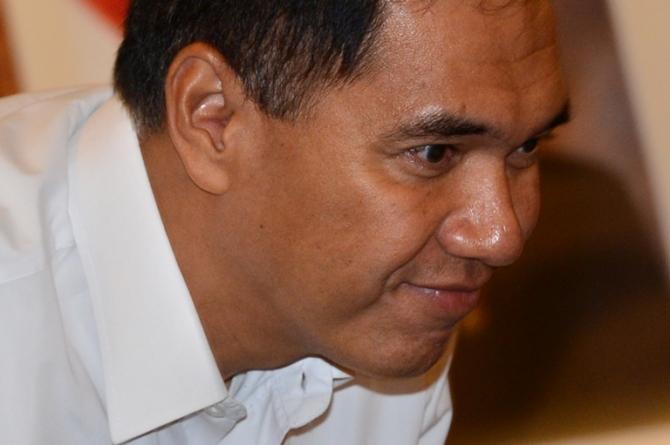
Gita Wirjawan is fond of telling visitors that he finds great relaxation at the keys of a piano, and when he has the time he can be found playing on occasion with world-class artists who visit Indonesia. But he is also a successful businessman who, after a career as an investment banker with JP Morgan Indonesia, founded Ancora Capital, a private equity fund, in 2008. In addition to his duties as trade minister, he also found time to take over the chairmanship of the Indonesian Badminton Association in late 2012. A fierce believer in upgrading the educational infrastructure of Indonesia, Gita has spearheaded numerous efforts to build linkages with top universities overseas.
Strategic Review sat down with Gita to discuss the economic challenges that will confront the new president and asked him to suggest various policy alternatives for the new administration.
How do you see the global and regional economic situation that will confront Indonesia’s next president? If anything, I think the call option will be on the United States in the near term. You know, with their demographics and the energy revolution, I think for the US you are going to see a lot more insourcing, manufacturing and what have you in the next five to 10 years, despite the Tea Party and whatever polarization we have seen.
And then on top of that you have geopolitical tensions in Southeast Asia and Northeast Asia. Nobody is going to be able to drill anything in the South China Sea until that tension gets resolved. And it is going to take years – no Chinese company, no American company, no Southeast Asian company, no European company is going to be able to easily exploit and explore in the South China Sea. So energy is not going to be a main source of income for the usual suspects within Southeast Asia, including Indonesia.
But despite that, oil prices are not going to go up. I think it will peak at $100 a barrel and it might even come down with this shale gas phenomenon. That’s my read of the geopolitics. And the Korean Peninsula is not helping either. So I think the risk premium is going to rise on top of what's going to happen in a few months by way of the taper off in quantitative easing in the US. That's going to put a squeeze on liquidity. When liquidity gets squeezed, all over the world but in the United States especially, interest rates rise, and if interest rates rise in Indonesia, the first guy to get squeezed is the ukayan, the small and medium guy, and that's going to hit the credit cards, the motorcycles and then the house. The house gets hit, then the mortgage gets hit. So if not properly managed, we could have some serious concerns in the foreseeable future.







%20resized.png)
